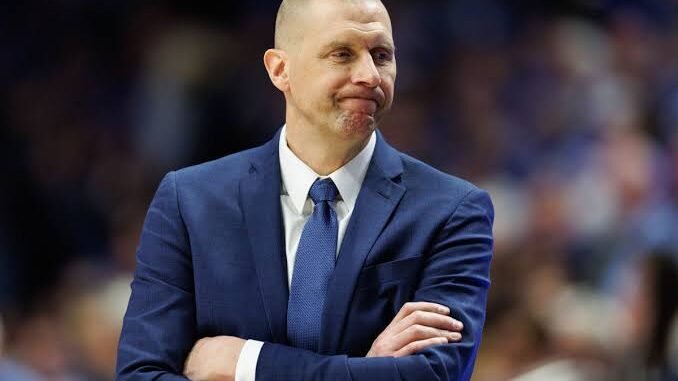
In a refreshingly candid interview, Kentucky head coach Mark Pope didn’t hold back his thoughts on the current state of college basketball, taking aim at what he sees as a toxic shift in the sport’s culture—one that’s “draining the fun” from the game he’s loved for decades.
Speaking to reporters during a summer camp event, Pope voiced his concerns about how recent changes in the NCAA landscape—particularly the transfer portal, name/image/likeness (NIL) deals, and increasing player movement—are eroding the foundational values of college basketball.
> “It used to be about building something over time—developing players, growing a team, teaching young men how to stick through challenges,” Pope said. “Now, it feels transactional. That’s what’s not enjoyable.”
While Pope made clear that he supports athletes having more control over their careers, he believes the current structure incentivizes short-term decisions over long-term development, which, in his view, hurts both players and programs.
> “We’re trying to win with guys who were on three different teams in three years,” he noted. “That makes it hard to establish identity, culture, or even joy in the process.”
Pope, a former Kentucky player himself, described a growing sense of disconnection between coaches and players. He pointed to the pressure for immediate success and the fear of losing athletes to the portal as key factors in making the job less fulfilling.
> “You’re not coaching a team anymore—you’re managing a revolving door,” he said. “That’s exhausting. And honestly, it’s taking the heart out of the game.”
His comments are already stirring debate in the college basketball community. Some praise his willingness to speak honestly, while others argue that coaches must adapt to the evolving landscape rather than resist it.
Regardless of the controversy, one thing is clear: Mark Pope’s remarks have added a sharp new voice to the ongoing conversation about the future of college basketball—and whether the joy at its core can be salvaged.
Leave a Reply